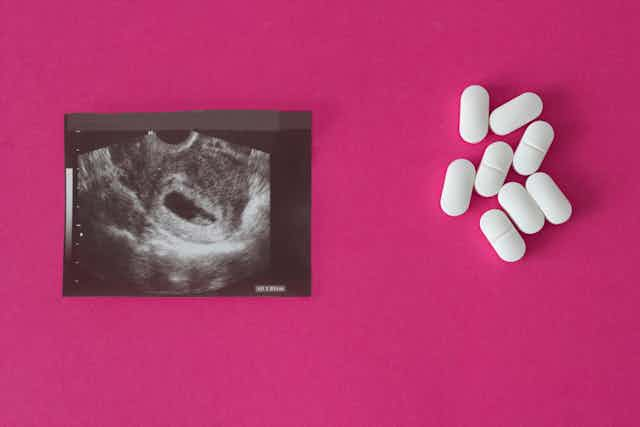Those who argue that the UK’s legal limit on abortion should be lowered below 24 weeks often do so on the basis of supposed improvements in foetal “viability” – the ability of foetuses born prematurely to survive outside the womb.
In early March, the MP Maria Caulfield, the Conservative party’s vice-chair for women, called for a “debate” on changing the law on abortion. She said:
We’ve got babies born now at 18, 19 weeks. I think it’s something like 50% of babies after 22 weeks are viable and yet abortion is still freely available up to 24 weeks.
Caulfield’s Conservative colleague Fiona Bruce had also advocated a reduction in the abortion cut-off in 2017. And in 2012 another Conservative MP, Nadine Dorries, secured a Commons debate on reducing the limit to 20 weeks – again on grounds of foetal viability.
While the most recent interjection from Caulfield stimulated heated discussion, her critics largely focused on disputing her claims about where the threshold of viability now lies. Yet, irrespective of the medical facts about the point at which a foetus could survive, it’s worth questioning the assumption that the morality of abortion is closely linked to those facts.
This assumption is common, among both those who want to reduce, and those who want to retain, the current abortion time limit. And it’s also prevalent elsewhere – notably in the US, where, as a result of the Supreme Court’s successive rulings in Roe v. Wade and Planned Parenthood v. Casey, significant governmental interference with a woman’s choice of an abortion prior to the point of the viability of the foetus is unconstitutional.
But morally speaking, it’s hard to see how foetal viability could have such deep significance.
Moral status
It’s rare for those who believe foetal viability should determine abortion limits to make their reasoning explicit. When they do so, however, they often seem to share the view of a midwife quoted in a Daily Mail article in 2017 in support of reducing the abortion cut-off. She said: “Women should be made aware that if they want a termination at 24 weeks, their baby is now viable. It is not a thing in them – it is a human being.”
These words suggest the view that, when a foetus is capable – with medical help – of surviving outside the womb, it acquires what philosophers call “moral status”. To have moral status is to matter morally in your own right, and so for there to be moral constraints on what may be done to you. Understanding the moral status of the foetus, and how this might develop over time, is a key part of what the philosophical problem of abortion is all about.
But the idea that foetuses acquire significant moral status when they become capable of surviving outside the womb is difficult to sustain. This is largely because whether a foetus could survive depends on variable features of the world around it, such as the available medical technology. Yet it’s strange to suppose that how much individuals matter morally could rest on something so subject to chance. We are used to thinking that our moral status is due to our intrinsic nature, such as our abilities to think, feel or reason, rather than arbitrary circumstances such as how advanced our society is.
Alternative futures
Probably the clearest way to confirm this is to imagine a world in which artificial wombs exist. As it happens, scientists have been working on these for some years, and have had recent successes incubating sheep foetuses. If an embryo after conception could be transferred to an artificial womb, all embryos and foetuses would be viable. But it would be absurd to conclude that abortion should then be banned. Neither defenders nor opponents of abortion are likely to be persuaded that embryos will suddenly acquire a new, higher moral status, on the day artificial wombs become available.
Infant survival rates can go down as well as up. Imagine that in the future air quality deteriorates so that foetuses born before 28 weeks almost never survive. Or suppose that viability declines because, following a financial crisis, funding for neonatal care services is unavoidably slashed. If moral status depends on whether or not a foetus could survive outside the womb, the abortion limit should presumably be raised under these circumstances. But again, this seems too arbitrary to accept.

Infant survival also depends not only on gestational age but on factors such as birth weight and sex. Heavier infants, and girls, are apparently more likely to survive. Nobody, however, is likely to think that a foetus’s moral status, rather than its medical prognosis, might depend on its mere weight or gender.
If a foetus’s survivability doesn’t determine its moral status, we still need to ask what does. This is a huge topic, which philosophers are still grappling with. But we should stress that attributing significant moral status to a foetus doesn’t mean that abortion should be banned, since women may have moral claims to decide what to do with their bodies that trump this status.
Wherever one thinks the truth lies, however, the debate on abortion would be enhanced by abandoning the idea that a moral transformation takes place in the foetus at the point when it is able to survive outside of the womb.

